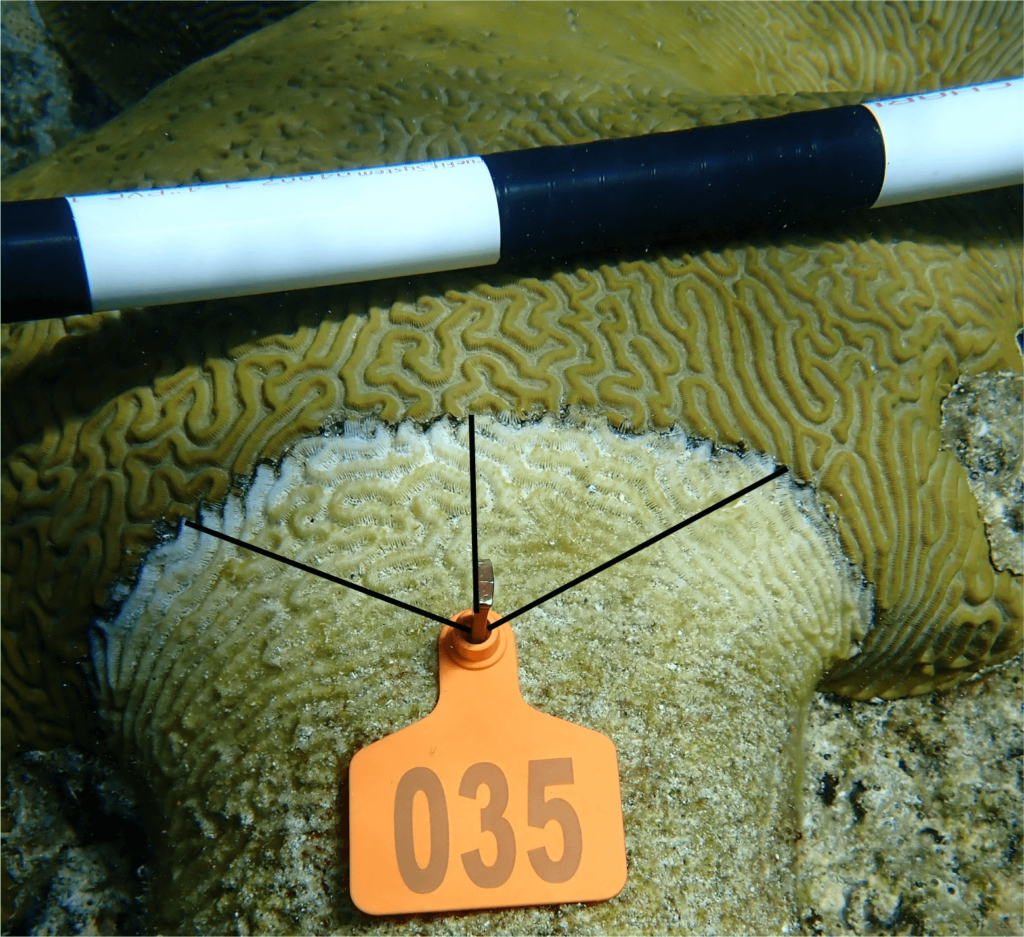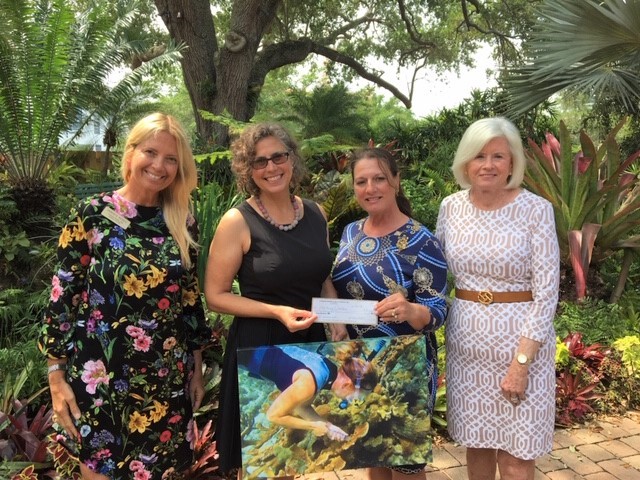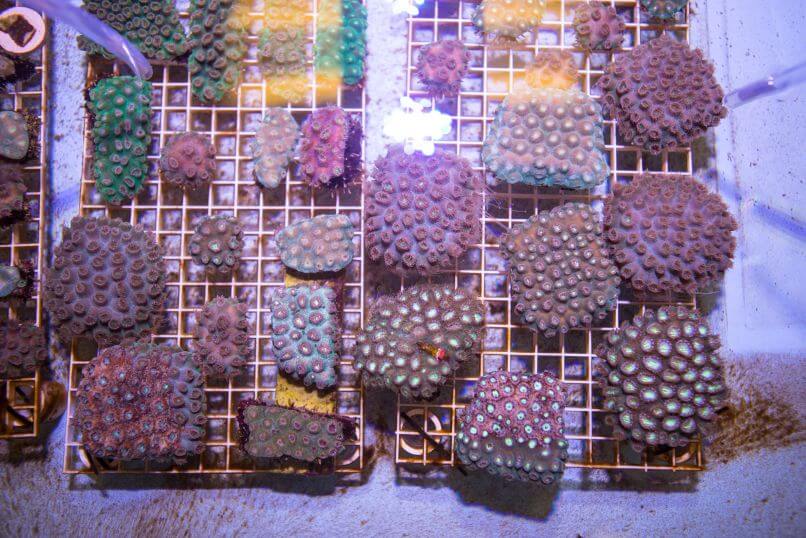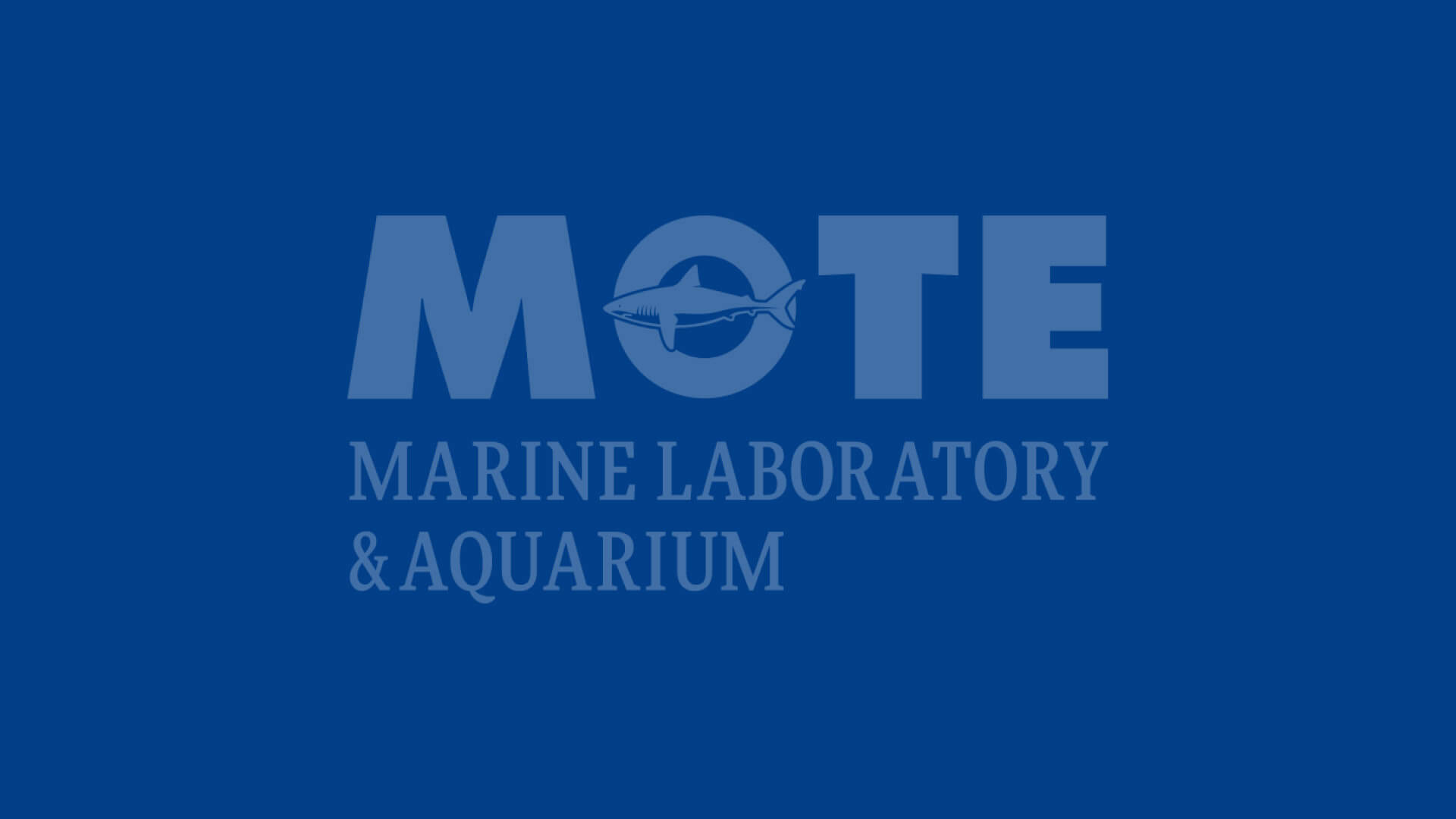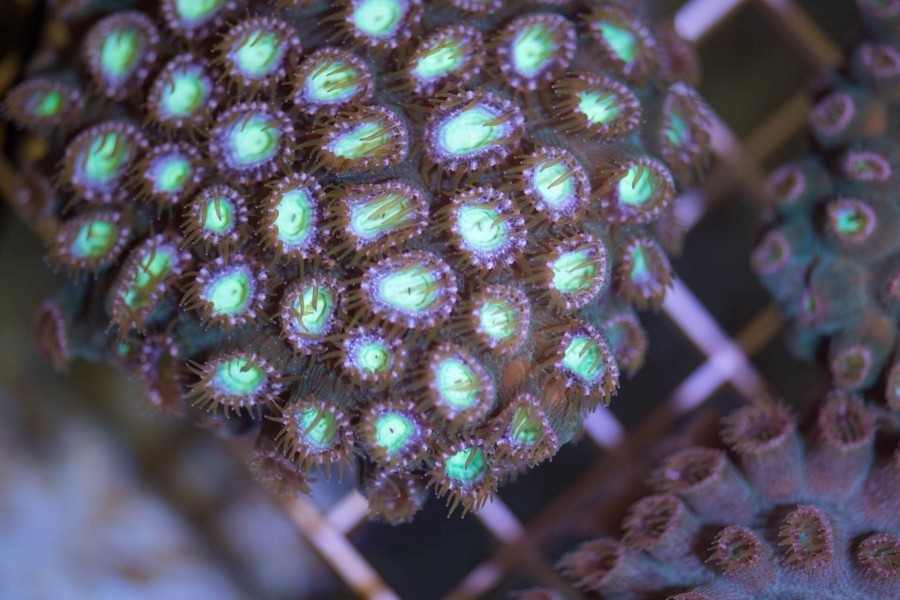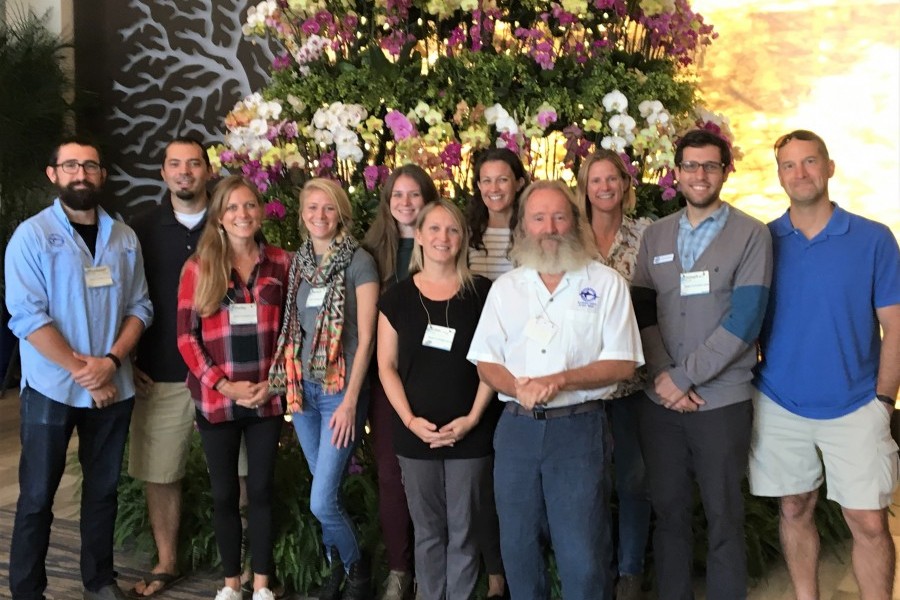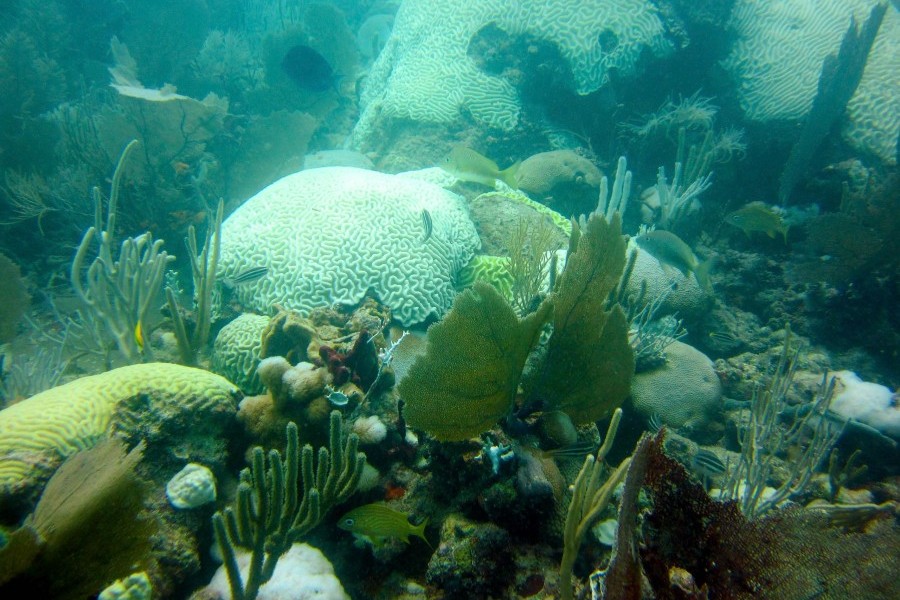Skip to content
You are using an outdated browser. Please upgrade your browser to improve your experience.
Mote Aquarium on City Island, Sarasota, is closed to visitors as we turn our full attention toward preparing to open Mote Science Education Aquarium (Mote SEA).
FAQ about Mote SEA
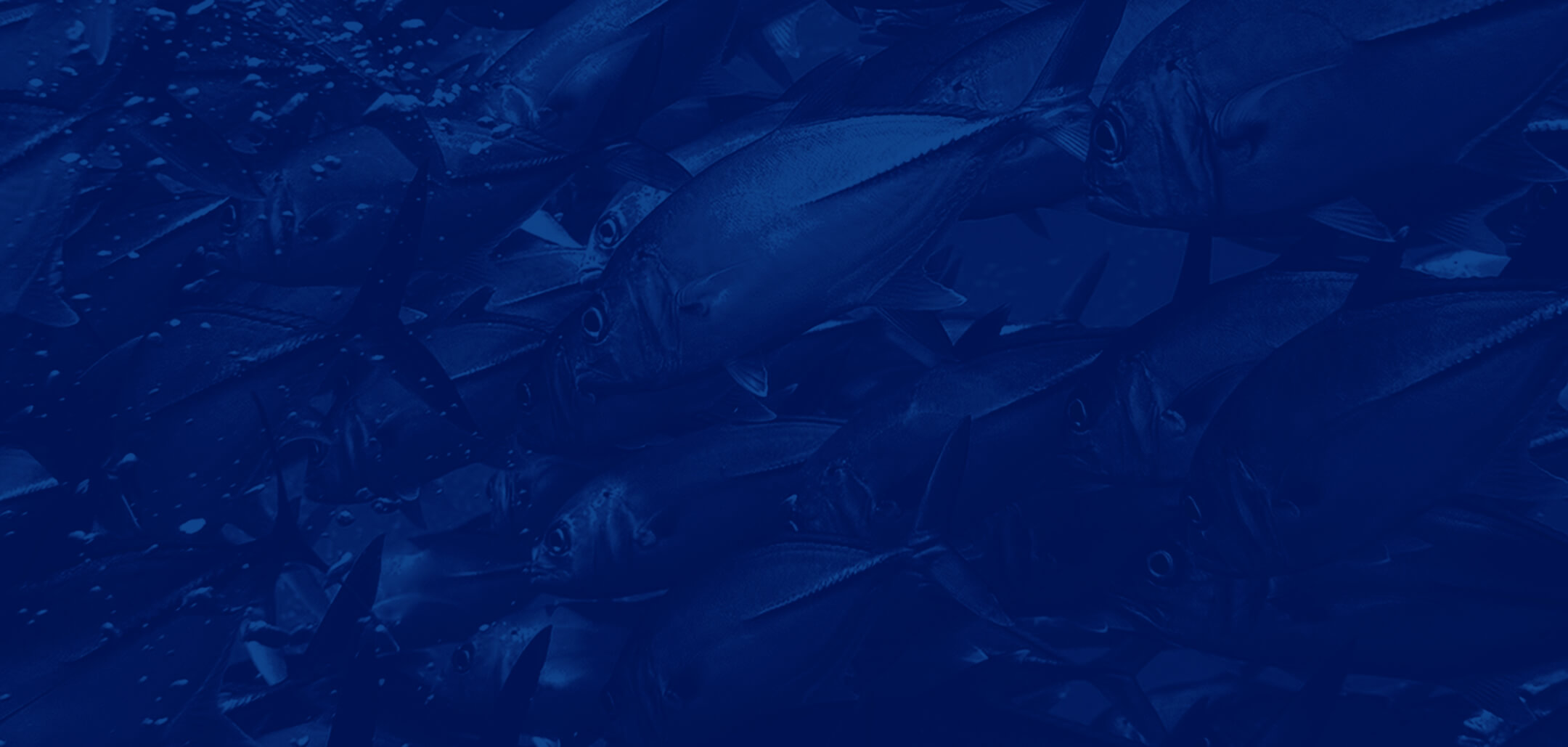
Mote Marine Laboratory & Aquarium teamed up with the National Park Service and pharmaceutical scientists at Ocean Alchemists LLC to develop treatments for black band disease (BBD), a lethal coral disease, which will contribute to the management of infectious coral diseases and aid in restoration...
Florida’s coral reefs have enough problems—unprecedented levels of coral disease, climate change, pollution and hurricanes—without struggling to reproduce sexually. But struggle they do.
As environmental stress grows and coral populations shrink worldwide, coral sexual cycles are becoming disrupted...
Coral reefs support more than 25 percent of ocean species, but they are declining around the world. Serious coral diseases, pollution and climate change can all stress corals. When water gets too warm, corals can bleach, or turn white, because they lose the important algae in their tissues. A bleached...
Mote Marine Laboratory & Aquarium is extremely honored to announce that Dr. Erinn Muller, Science Director of Mote’s Elizabeth Moore International Center for Coral Reef Research & Restoration and Manager for Mote’s Coral Health & Disease Research Program, has been awarded the prestigious...
Mote Marine Laboratory & Aquarium coral scientists may get one step closer to better understanding a devastating coral disease with the help of a new grant from the Founders Garden Club of Sarasota.
The Founders Garden Club, a member of the Garden Club of America and based in Sarasota, awarded...
New research results, expanded restoration efforts target stony coral tissue loss outbreak
Florida’s coral reefs are facing an unprecedented, deadly and rapidly spreading coral disease outbreak — putting them at risk of functional extinction — and Mote Marine Laboratory scientists are accelerating...
This year, Mote Marine Laboratory staff rebuilt and enhanced their ocean acidification research system in the Florida Keys to double its capacity and incorporate finer-scale controls of experimental conditions, after Hurricane Irma destroyed the previous OA system in September 2017. This year’s improvements...
As the unprecedented outbreak of stony coral tissue loss disease continues affecting more than 96,000 acres of Florida Keys reefs during December 2018, Mote Marine Laboratory and the Florida Department of Environmental Protection (DEP) are co-leading a Restoration Trials Team to determine best practices...
Science-based coral reef restoration took the spotlight during six Mote Marine Laboratory research presentations at the 2018 Reef Futures Symposium, hosted by the Coral Restoration Consortium during December 2018 in Key Largo. A total of 11 Mote scientists attended, and Mote sponsored the attendance...
Mote scientists will host a training session at 6 p.m. April 18 on Summerland Key for divers and snorkelers interested in volunteering for the Florida Keys BleachWatch program. This program provides early warnings of potential coral bleaching events in the Florida Keys National Marine Sanctuary during...


